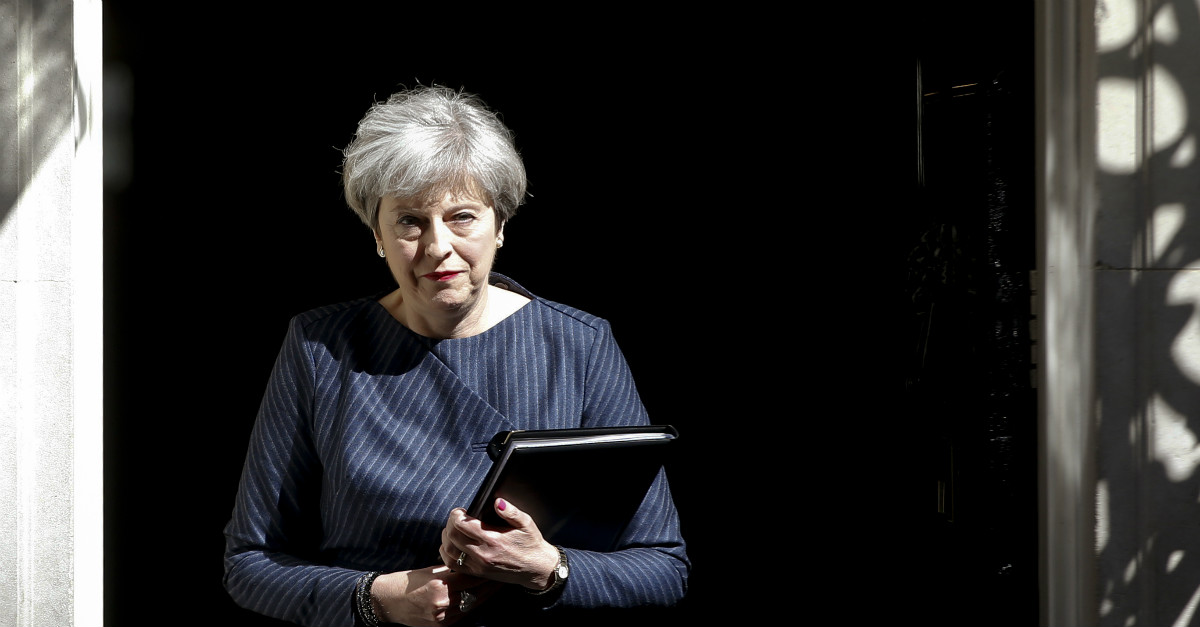On Saturday, the United Kingdom suffered its second terrorist attack in only a few weeks. Three assailants rammed a van into pedestrians on the very central London Bridge in London, killing seven and wounding 48 (21 are fighting for their lives in the hospital at this time). According to The Telegraph, the police fired an “unprecedented” 50 bullets in order to neutralize the attackers, as it was believed they were wearing suicide vests. ISIS has since claimed responsibility for the attack.
Videos by Rare
In the aftermath, British Prime Minister Theresa May has called for stricter regulations on the Internet. According to May, international agreements should impose tougher surveillance online, force Internet providers to participate in counter-extremism actions, and make it more difficult to access pornography.
The prime minister said introducing new rules for cyberspace would “deprive the extremists of their safe spaces online” and accused technology firms of not doing enough, adding:
So we need to become far more robust in identifying [Islamic terrorism] and stamping it out – across the public sector and across society. That will require some difficult and often embarrassing conversations, but the whole of our country needs to come together to take on this extremism…
May isn’t the first world leader who believes the Internet must be regulated to prevent terrorism. During his presidential campaign, Donald Trump called for “a partial closure” of the Internet in order to combat ISIS terrorism, a practice only authoritarian countries such as Egypt and North Korea have put into place. “Oh somebody will say ‘oh freedom of speech, freedom of speech.’ These are foolish people,” Trump exclaimed at a rally in South Carolina.
While no European country seems prepared to follow Trump’s advice and shut the Internet down, many still intensely regulate it. In France, 60 percent of Internet material taken down by authorities in 2016 was related to terrorism. In total, the French government received over 5,500 requests for takedowns within a year, with over 2,000 being content censorship and over 800 being entire websites. Over 600,000 Twitter accounts in France have been suspended over allegations of “glorifying terrorism.”
The European Union has praised big communications companies such as Facebook for deleting hateful content online and thereby respecting the union’s Code of Conduct. This Code covers:
Illegal hate speech, as defined by the Framework Decision 2008/913/JHA of 28 November 2008 on combating certain forms and expressions of racism and xenophobia by means of criminal law…means all conduct publicly inciting to violence or hatred directed against a group of persons or a member of such a group defined by reference to race, colour, religion, descent or national or ethnic origin.
EU member states are thus officially censoring the Internet. At the beginning of June, the EU was congratulating itself, stating that the censorship rate is twice as performant as it was six months ago. The notable success of this strategy remains to be seen.
RELATED: Righteous anger and numb futility follow the attack on Manchester
The only embarrassing conversation someone needs to have with Theresa May is about a free Internet. Let’s not be ignorant of the threat we are facing: terrorists have gotten around travel bans, security checks, fiscal checks, gun control. They have faked passports, IDs, and driver’s licenses. All of them are willing to die for their beliefs. The idea that ISIS has not figured out encryption or means of communication that can circumvent Internet regulations is fundamentally misguided.
Not only are restrictions on Internet usage visibly ineffective, they also restrict the rights of its consumers. The more platforms like Facebook censor radical ideas online, the more those ideas will be pushed underground, where they’ll be even more difficult to monitor.
Being afraid in the face of terror is one thing. Handing the power of censorship to the government in order to keep you safe is quite another.



